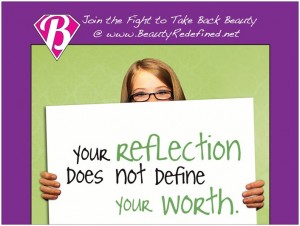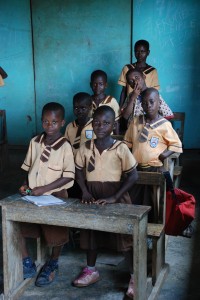While most students were taking finals and wrapping up their winter semester, Wilson Ashton was busy giving away $10,000.
The Be a Philanthropist project launched its three-year program last semester. The project, funded by a grant from the Sorenson Legacy Foundation, offers microgrants of up to $300 to fund small projects that improve the community.
“It was incredible,” Ashton said. “I didn’t think people could be so creative … It was unbelievable and it was also really cool to see. I felt like our $300 was going a lot further than $300 worth of value.”
The project’s purpose is to make an impact in a variety of communities. Three funded projects proposed by BYU students will influence local, national and international communities.

Changing the way women view themselves
Christina Hall is a graduate student and is passionate about empowering women and fighting negative images and expectations that are prevalent in the media.
“The world tells women that they’re important because of what they look like,” Hall said. “And that’s not true. You don’t have to maintain these ideals that are actually harmful to women in order to be beautiful and to be respected.”
When Hall applied to the Be A Philanthropist project, she requested money to purchase posters from Beauty Redefined, a nonprofit organization that promotes women’s issues and fights negative media messages.
By hanging the posters in local schools, Hall hopes to spread the message of women’s value to all ages and change the way girls view themselves.
“It’s amazing the statistics they have on kindergartners who think they’re fat and want to diet,” Hall said. “It starts so young.”
Laughter is the best medicine
Public service announcements are usually boring — a brief commercial with an important message, but not interesting enough to get anyone’s attention. Three public health students — Dave Vance, Cameron Lister and Ben Cannon — want to change that. They each applied for money to purchase video-making equipment to establish a YouTube page dedicated to making viral videos about health.
“Public health is about preventing people from becoming sick in the first place,” Vance said. “So the main focus of this project is getting out messages that help prevent people from getting sick.”
The trio knows their project has to be done right in order to be successful, so they teamed up with writers and comedians to create funny videos that have an important message.
“We have really funny people who work to develop things.” Lister said. “And basically, we try to play with the ridiculous side of health. Try to convey it in a way that hasn’t been done before.”
The trio hopes the YouTube channel will begin generating money to fund future videos.
“We may be funded initially by grants,” Cannon said. “But going forward there’s going to be some more business elements that are going to come in and be able to provide that funding.”
The gift of knowledge

Chris Cannon is the executive director of Empower Playgrounds, a nonprofit organization that installs playgrounds that generate electricity as children play. The electricity then charges lanterns children use to do their homework at night.
As Cannon and his team worked with schools in Ghana to install playgrounds, they saw another need.
“The (Ghanaian) government makes these little study books for each course subject,” Cannon said. “We took the science curriculum, and we made hands-on science experiments that go with each one. So it really drives home those scientific concepts that are difficult to grasp without hands-on or visual representation of some kind.
“These little science kits are having a huge impact,” Cannon added. “Through Be a Philanthropist, we can provide one more to a school of about 300 students.”
The Be a Philanthropist project maintains a website, www.beaphilanthropist.com, and plans on establishing a YouTube channel to show the different ways people used their grant money to benefit the world around them.
The Be a Philanthropist project has funding for three years; there are still two years left for applicants to apply. The project accepts applications from anyone with an idea, not just BYU students or Provo residents.




